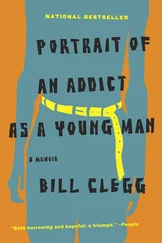Should any of us now hesitate in the adoption of a particular meridian, or should any nation covet the honor of having the selected meridian within its own borders, it is to be remembered that when the prime meridian is once adopted by all it loses its specific name and nationality, and becomes simply the Prime Meridian.
Absolute horse-shit of course, but high-minded horse-shit of the finest grade. The Americans were really getting the hang of this diplomacy lark.
M. Janssen was the undoubted star of the event, able to turn in grandiloquent speeches, on any topic, that lasted an hour or two. Realising that the neutrality argument was all that lay in the way of the adoption of Greenwich, he worried at it like a starving poodle:
An immense majority of the navies of the world navigate with English charts; that is true, and it is a practical compliment to the great maritime activity of that nation. When this freely admitted supremacy shall be transformed into an official and compulsory supremacy, it will suffer the vicissitudes of all human power, and that institution [the meridian], which by its nature is of a purely scientific nature, and to which we would assure a long and certain future, will become the object of burning competition and jealousy among nations.
Anyone particular in mind, Monsieur?
Professor J. C. Adams, of the British delegation, waspishly replied that Janssen’s ‘eloquent address, in so far as I could follow that discourse, seemed to me to turn almost entirely upon sentimental considerations’, and reiterated the point of practicality, that the most ‘convenient’, i.e. widely used, meridian would make the most sense. He didn’t sully his purity by naming it; he didn’t need to.
In turn, Janssen rebuffed Adams in the politest way possible, while managing a few withering digs at his British counterparts (‘and we are still awaiting the honour of seeing the metrical system for common use in England’). He protested—rather too much—that the French objection was nothing whatsoever to do with ‘national pride’ and questioned the idea of the ‘convenience’ of the Greenwich Meridian. To whom exactly, he postulated, was it convenient? Ah, the Brits and the Yanks: the ‘advantage is to yourselves, and those you represent, of having nothing to change, either in your maps, customs or traditions—such a solution, I say, can have no future before it, and we refuse to take part in it’. He persevered in even darker tones: ‘You see, gentlemen, how dangerous it is to awaken national susceptibilities on a subject of a purely scientific nature.’ Ratcheting up his rhetorical powers, he concluded one particularly long speech with a flourish: ‘Whatever we may do, the common prime meridian will always be a crown to which there will be a hundred pretenders. Let us place the crown on the brow of science, and all will bow before it.’
Janssen’s sterling verbosity was only delaying the inevitable, so, realising that they were backed into a corner, the French hit their nuclear button, issuing veiled threats that they might walk out of the conference and then, when that went almost unnoticed, strident complaints about the standard of translation into their language at the conference. They demanded a recess in order to find a better French stenographer, a process that kept the conference from reconvening for a full further week. When all the delegates reassembled on Monday 13 October, everyone’s positions, after seven days of backstage back-stabbing, had coagulated into immutability.
The French kicked off proceedings by playing what was their only remaining decent card, the demand for the ‘absolute neutrality’ of any chosen meridian. It was put to the vote and heavily defeated by 21 to 3. As a faintly placatory gesture, Sandford Fleming, one of the British delegation, invoked the idea of placing the Prime Meridian 180° from Greenwich, thus, he said, giving it some political neutrality and positioning it largely in the uninhabited Pacific Ocean. The idea didn’t mollify the French at all, who sneered that even if the Prime Meridian was 180° from Greenwich, it was still the Greenwich Meridian in all but name, only in reverse.
This proposal from the British delegation was typical of our fauxhumble demeanour at this stage in the proceedings: it’s easy to be magnanimous when you’re clearly winning, especially in a contest that you’re feigning absolute disinterest in. The British vat of oil to pour on troubled waters was soon generously employed again, as the French and Spanish reminded delegates that their governments fully expected Britain and the USA to join the metric system, if not in a quid pro quo for the adoption of Greenwich, then certainly in the same spirit of global good manners and scientific unity. One of the British delegation, General Strachey, smoothly replied:
I am authorised to state that Great Britain, after considering the opinions which were expressed at Rome, has desired that it may be allowed to join the Convention du mètre…[and] that there is a strong feeling on the part of the scientific men of England that, sooner or later, she will be likely to join in the use of that system, which, no doubt, is an extremely good one.
In other words, we’ll get home and do precisely nothing about it for a century, but thank you so much for your concern. Stuff you with a smile, Monsieur.
The definitive vote on adopting Greenwich loomed, and the French made one last desperate bid to prevent it. The loquacious M. Janssen deferred to his colleague M. Lefaivre to make their final plea. ‘The meridian of Greenwich is not a scientific one,’ piped Lefaivre, ‘and its adoption implies no progress for astronomy, geodesy or navigation.’ It was only ‘convenient’, not scientific, a fact that
our colleague from Great Britain just now reminded us of by enumerating with complacency the tonnage of British and American shipping…Science appears here only as the humble vassal of the powers of the day to consecrate and crown their success. But, gentlemen, nothing is so transitory and fugitive as power and riches. All the great empires of the world, all financial, industrial and commercial prosperities of the world have given us a proof of it, each in turn.
This was the sound of grand nobility in defeat, for the vote was then taken and Greenwich confirmed as the world’s Prime Meridian by 22 votes to 1, with two abstentions. Only San Domingo (the island of Hispaniola) voted against, with Brazil and France abstaining. They didn’t want to look like sore losers. Or rather, they were saving that for later.
After further lengthy arguments about how to calibrate degrees from Greenwich, and how to calculate time zones, the French asked for another deferment of the conference. They returned six days later with a small bombshell of a proposition: that the metric system—which, they reminded delegates, everyone had spoken so voluminously in favour of—should be extended from the measurement of length, volume and weight and into the realms of degrees, angles and time. Greenwich might be getting the line through it, but at least the grid of longitude and the calibration of the day that spun off it might be expressed in a French way, or at least in a way that was guaranteed to piss off the Anglo-American alliance. The British and the Americans cried foul, that such a decision was beyond the remit of the conference.

Style over substance: the Paris meridian
For the first time in weeks, the French smelled English-speaking blood and pressed home their slender advantage, demanding a vote on whether or not a vote could be taken on the topic. It was close. Thirteen countries agreed that the issue of metricising time and angles could be considered; nine, Britain and the US included, voted against. Two abstained. So, as eager not to appear bad losers as had the French been on the Greenwich vote, the Americans and British then ostentatiously supported the metric system in the subsequent vote. In fact, no one voted against it—not that that made the faintest bit of difference in actually making it happen.
Читать дальше













